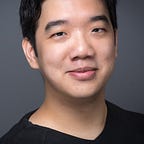Frank Passani
Notion Press (2020) / 219 pp.
To purchase the book, click here.
Passani’s cerebral novel revolves around Melpomene Lau, a Spanish literature professor teaching at the Singapore University of Literary Studies in 2032.
Through a series of vignettes presented in various literary forms (diary entries, dialogues, flash-back, flash-forward, reversals, speculative imaginings of utopia and dystopia), we see Lau dealing with the void that she feels, triggered by a suicide of a friend and the general ennui induced by the demands of modern life.
As hinted by the Lau addressing her diary as Transcendental Ego, we get more of an intellectual rather than an emotional exploration of this void. Initially, it might be difficult for most readers to have a handle on this as it is full of academic terms and references. However, Passani does leave some clues as to what he is doing towards the latter half of the novel.
Those who have any training in philology or literary studies will have a field day as Passani is unafraid to reveal the breadth and depth of his academic background through his protagonist. This book could easily double up as a reading list for anyone who wants to delve deeper into literary studies or world literature.
Lau would eventually go on to write a novel, Void. These and other self-reflexive elements in the novel seem to express Passani’s views on academia, literature, and even aspects of Singaporean society. However, rather than exploiting his protagonist to be a mere mouthpiece of his views, care is taken to weave that into the story.
A couple of areas in which I wished Passani would delve a little more into are Lau’s identity and the setting of Singapore in the near future.
In the novel, it is established that Lau’s father hails from Hong Kong, while her mother hails from Madrid. Her parents decided to settle in Brighton, which lends her sort of a triple identity. Add to the fact that her name is due to her mother specialising in Ancient Greek philology, and we get an interesting mélange. With Singapore priding itself on being a multicultural society, it would be fascinating to see how someone with such a complex identity exist within that society.
Placing the novel in Singapore 12 years ahead from the present day allows Passani some leeway to invent certain elements, such as the university Lau is teaching at. That said, apart from mentioning COVID-27, I would love to see how he imagines other areas of Singapore-as a foreigner who has lived in Singapore for a decade-based on current trajectories.
On the whole, this novel requires a patient reader as one has to scale the mountain of academic references. However, Passani makes the journey a little less arduous with an engaging narrative and a thinly veiled explanation later on. If anything, it has sparked an interest in me to explore world literature to find out what inspired him to structure the novel that he did.
Support my writing via Ko-Fi.
Originally published at http://isaactanbr.com on December 16, 2020.
